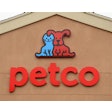
Executives for pet food manufacturer Alphia may be looking to sell the company for more than US$1 billion, reported Reuters citing an anonymous source. Alphia is working with investment bank Goldman Sachs Group to explore this potential sale. However, the source stated that no deal is certain.
About pet food maker Alphia
Alphia is a portfolio company of J. H. Whitney Capital Partners, a Connecticut, USA-based private-equity firm, according to Petfood Industry’s Top Companies Current Data. Alphia works with pet food brands as a co-manufacturer and retailers looking to develop, revise or expand their pet food brands. Alphia can produce dry dog and cat food, dog treats, canned dog and cat food and pet bird food. It has the capacity to manufacture more than 1 billion pounds of pet food and treats annually. The company also includes subsidiaries LANI (formerly Lortscher’s Animal Nutrition) and Veracity Logistics.
Alphia, a custom manufacturer of superpremium pet food based in the United States., resulted from the 2020 merger of C.J. Foods and American Nutrition. The combined company employs approximately 800 people. Alphia makes a portfolio of pet food and treats. The company has a national footprint of 10 locations across 6 states. The company manufactures more than one billion pounds of dry, canned and baked pet food and treats annually.
J. H. Whitney Capital Partners (JHW) has owned C.J. Foods since 2014 and acquired Lortscher's Animal Nutrition (now LANI) in 2018. JHW has invested in more than 400 companies since formation and currently manages approximately US$1.0 billion in private capital. JHW remains privately owned by its investing professionals and focused on three primary sectors: consumer, healthcare and specialty manufacturing.
Related pet food industry mergers and acquisitions
How C.J. Foods’ buy of American Nutrition boosts brands
February 28, 2020 - C.J. Foods, superpremium pet food manufacturer, will benefit from a wide geographic footprint and massive production volume, once C.J. completes the acquisition of American Nutrition.
C.J. Foods acquires Lortscher Animal Nutrition
April 11, 2018 - Lortscher is based in Bern, Kansas, USA with additional locations in Seneca, Kansas and Brownwood, Texas.
C.J. Foods acquires Day Six Pet Nutrition
February 16, 2016 - C.J. Foods Inc., a provider of specialty dry pet food manufacturing services for super premium pet food brands in the US, has acquired Day Six Pet Nutrition, which also specializes in manufacturing specialty dry pet food brands.
















